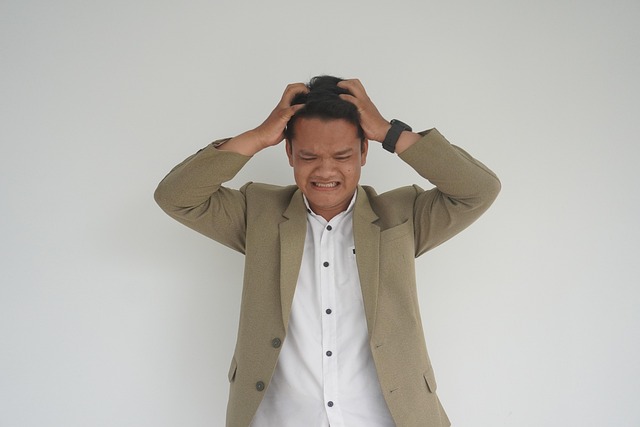If dizziness or balance problems disrupt daily life, accurate diagnosis is essential. Vestibular function tests in London offer detailed insights into inner ear performance, identifying issues causing vertigo. Through advanced methods like Video-Nystagmography and Caloric Testing, specialists pinpoint dysfunctions, guiding effective treatment plans to restore stability and improve quality of life.
Accessing Vestibular Function Tests in London: Clinics, Appointments, and Patient Guidance
For those seeking comprehensive balance and dizziness evaluations in London, Vestibular Function Testing Services are available at multiple well-established locations including Harley Street, Chelsea, Winchmore Hill, and Bushey. These clinics offer cutting-edge assessments such as video-nystagmography, caloric testing, and the Epley Maneuver for vertigo.
Also read : What Factors Contribute to the Rising Trends in UK Healthcare?
Booking a vestibular appointment usually involves a GP or ENT referral. Clinics provide clear guidance for patient preparation: avoid anti-dizziness or allergy medications, alcohol, caffeine, and eye makeup for at least 24-48 hours before your test. Some locations advise having your ears checked for wax in advance. Wait times typically range from one to two weeks, with most tests and result explanations completed in a single session lasting 1-3 hours.
Upon arrival, patients undergo initial consultations, followed by a series of tests tailored to their symptoms, whether dizziness, vertigo, or imbalance. Results are often discussed immediately, and a detailed written report is forwarded to your referring specialist, streamlining access to further treatment or vestibular rehabilitation as needed.
Also read : What Are the Key Factors Influencing Health Policies in the UK?
Comprehensive Vestibular and Balance Testing: Types and Diagnostic Methods
Video-Nystagmography (VNG) and Eye Movement Recording
The Video-Nystagmography (VNG) test uses infrared video goggles to precisely record eye movements, which reflect the function of the inner ear and brain balance pathways. By observing involuntary eye motions during specific visual tasks, audiologists identify abnormal patterns linked to dizziness and balance problems. VNG is particularly valuable for detecting subtle abnormalities and is often performed both in light and darkness to enhance accuracy.
Caloric Testing and Assessment of Inner Ear Asymmetry
Caloric testing detects how each inner ear responds to temperature changes by irrigating the ear canal with warm and cool air or water. This procedure triggers brief, measurable eye movements as the vestibular system is stimulated. Key findings include asymmetries between ears, crucial for diagnosing unilateral vestibular disorders. Though the test can cause temporary dizziness, results are dependable for guiding medical decisions.
Vestibular Evoked Myogenic Potential (VEMP) and Otolith Organ Evaluation
The Vestibular Evoked Myogenic Potential (VEMP) test evaluates the otolith organs’ reflexes by measuring muscle responses to sound stimuli using electrodes placed on the forehead, neck, and collarbone. This precise assessment uncovers specific vestibular defects not detected via other tests, offering a more targeted diagnosis for complex balance issues. Each of these methods supports tailored treatment planning for balance and dizziness.
Specialist Procedures for Dizziness and Vertigo: Advanced Diagnostics and Treatment
Positional Testing for BPPV: Dix-Hallpike and Horizontal Roll
Precision: Positional tests like the Dix-Hallpike and horizontal roll directly determine if benign paroxysmal positional vertigo (BPPV) is the cause of dizziness by reproducing symptoms and observing abnormal eye movements called nystagmus. These tests involve moving the patient into specific positions to trigger vertigo, pinpointing which semicircular canal is affected. This step is vital for swiftly identifying BPPV, so that targeted therapies can begin without delay.
Advanced Assessments: Video Head Impulse Test (vHIT) and Rotational Chair Tests
Depth: For patients whose symptoms require further exploration, the video head impulse test (vHIT) checks the capacity of each semicircular canal to stabilize vision during rapid head turns. This is performed using infrared goggles while the clinician gently moves the patient’s head. The rotational chair test offers another dimension—it rotates the patient side-to-side or in full turns while recording eye responses, revealing subtle vestibular weaknesses. Together, these diagnostics help pinpoint inner ear or nerve disorders.
In-clinic Vertigo Treatments: Epley Maneuver and Vestibular Rehabilitation Pathways
Treatment: When positional vertigo is confirmed, clinicians can perform the Epley maneuver a precise sequence of guided head and body movements intended to reposition dislodged crystals in the inner ear. For ongoing symptoms, patients may be referred to vestibular rehabilitation, an individualized exercise program to retrain the brain’s response to motion, promoting balance recovery and reducing dizziness impact in daily life.
Practical Considerations: Patient Preparation, Costs, Reviews, and Quality of Care
Preparing for Testing: Medications, Lifestyle, and Comfort Recommendations
For accurate vestibular function tests, patients should discontinue anti-dizziness medication such as prochlorperazine or Betahistine 48 hours before their appointment, unless otherwise instructed by their doctor. Critical medications for chronic conditions should continue as prescribed. Avoid caffeine, alcohol, sleeping pills, and allergy medications within 24–48 hours prior to testing. Keep ears free from wax, preferably by checking before your visit. Do not use eye makeup, as this may interfere with eye movement recording. Wear comfortable clothing and eat a light meal. Some mild post-test dizziness or tiredness is possible, so arranging for escort assistance home is advisable.
Cost Overview, Insurance Coverage, and Typical Wait Times in London
Vestibular examination cost in London varies, typically ranging from £250 to £600 depending on test complexity and clinic. Most private clinics accept referrals from GPs or ENT specialists and may offer insurance reimbursement patients should confirm individual policy coverage. Wait times are usually brief, with appointments available within 1–2 weeks and same-day results provided in most cases.
Patient Experiences: Reviews, Professionalism, and Treatment Outcomes
Patient reviews consistently highlight professionalism, compassionate communication, and thorough assessments. Immediate feedback, clear reports, and detailed explanations of treatment plans create a positive patient experience. Outcomes often include improved management of dizziness or vertigo, reflecting the value of a comprehensive balance disorder evaluation and the expertise of the clinical team.








